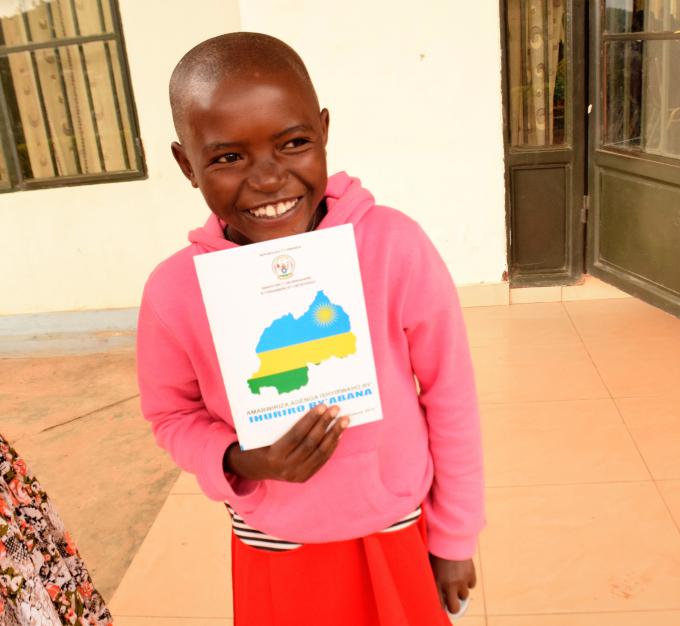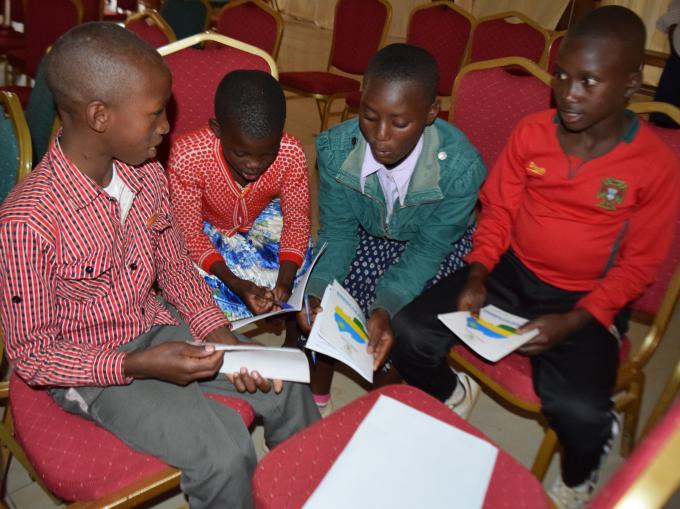No child’s idea to be left behind: National Children Summit is about child participation
15th November 2016, Burera – “I wish I could get a chance to sensitize all parents in my community to send their children to school. Because without going to school, the future is worse,” says 9 year old, Emerthe Tuyiramye (P3), during pre-summit consultative meetings in Burera District.

Emerthe was one of the 40 children in Burera District participating in the grass root consultative meetings aimed at consolidating children’s views, opinions and suggestions on the theme orienting the 11th annual National Children’s Summit.
“I am excited about my participation in this grassroots consultative meeting. I have learned a lot through discussions with my peers around the theme, which I am ready to share with my neighbors. I will be the voice for children in my community,” says 12 year old Jean Nsengimana.
Established in 2004, the annual children’s summit is a national level consultative forum that convenes children’s delegates from all the administrative Districts and Sectors across the country. Children are thus given a voice about what is done or planned for them; concerning the country’s policies and programs, economic and social development, children rights, challenges and responses as well as children’s own role in all that concerns them.
“Involving children in giving their opinion on matters that affect them is their right. As Save the Children, we initiated “The Child Advisory Platform” that facilitates children to raise their views,” explains Stephanie Kobusingye, Child Participation Specialist at Save the Children Rwanda.

To ensure that every child’s idea is heard, Save the Children in partnership with National Commission for Children, gathered together children’s leaders in all Districts of Rwanda including Burera, Ngororero, and Gicumbi where Save the Children Education Signature Program has interventions.
Save the Children’s Child Participation Programme
At SCI, we believe involving children is beneficial for them because they gain confidence and increase self-esteem. By mainstreaming child participation in the process of planning, implementation and monitoring of programmes that affect them directly or indirectly, children feel heard, respected, gain skills of negotiation and feel valued by the rest of the community they live in. This is very important for their growth and development.
“Child Participation Programme is not just limited to work related areas, it needs to be integrated into every part of society. Children must participate in all societal issues that affect them directly or indirectly. There should be a framework for strengthening communication between adults and children and directly between children themselves”, noted Stephanie.
 Rwanda
Rwanda